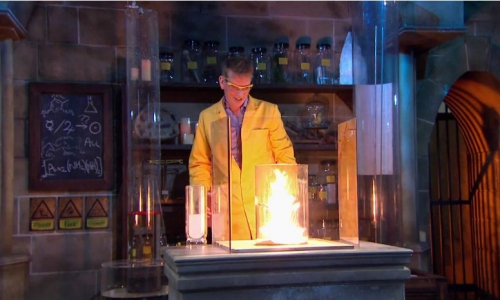They belong to Christmas like turkey and mince pies: the Royal Institution (Ri) Christmas lectures. Each year they bring a touch of science straight to our living rooms.
The lectures are fantastic every year. But for us at the RSC, last year’s ones were even more special, because they focused on chemistry.
In his three lectures, Dr Peter Wothers – a chemist at Cambridge University – explored the chemistry around us. Filling the TV studio with lightning, explosions and burning flames, he looked at air, water and earth – three of the ancient Greek elements that tantalised alchemists for centuries – and the chemistry behind them. It was a fantastic display of why chemistry is fun.
But don’t worry if you missed the spectacle when the lectures were aired on the television! The RSC and our Learn Chemistry team partnered with the Ri to turn the best parts from the lectures into a set of
teaching resources.
The resources are based around ten chemistry-related themes that Peter covered in his Modern Alchemist lectures. Many of them cover topics you are teaching in the classroom, such as atomic structure and the periodic table, radioactivity, climate change, the halogens and the alkali metals.
 Dr Peter Wothers demonstrates the effect of altering the amount of oxygen present in the air
Dr Peter Wothers demonstrates the effect of altering the amount of oxygen present in the air
We have included background information, links to video clips from the lectures, questions and ideas for group discussion to help you teach these subjects. And if you or your students would like to find out more about a topic, you can easily follow the links to other Learn Chemistry resources on related topics.
We hope you enjoy using these
new resources in your classes!
The Learn Chemistry team
Ps: If you haven’t seen it already, why not have a look at the
Alchemy section on our Visual Elements Periodic Table?!
